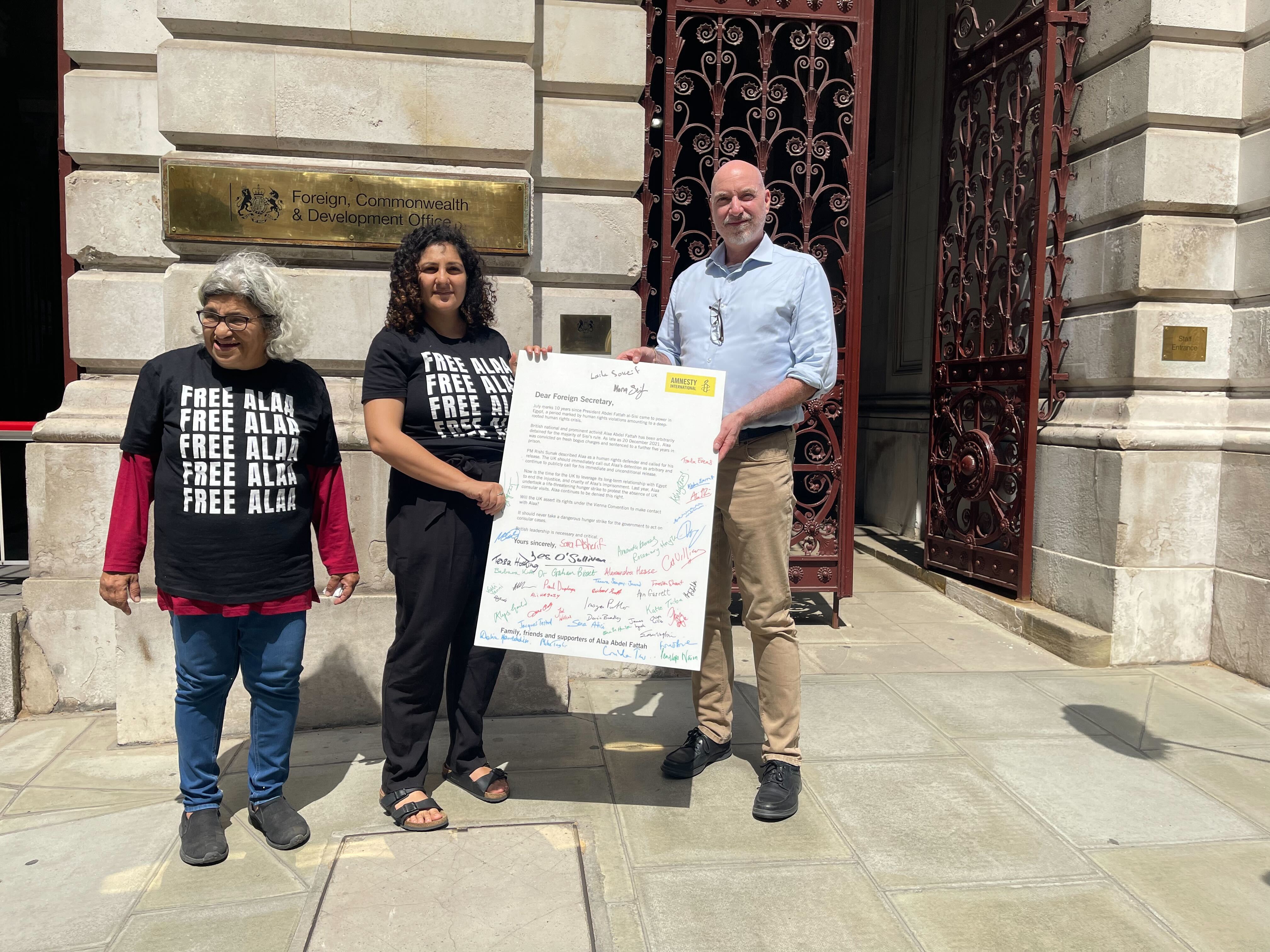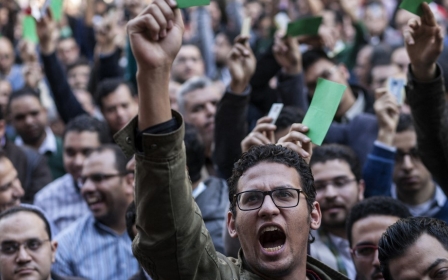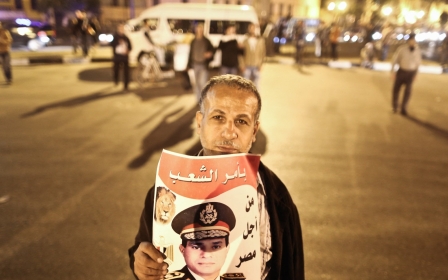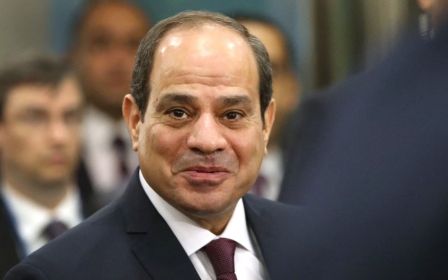UK urged to update Egypt travel advice with guidance on detained nationals
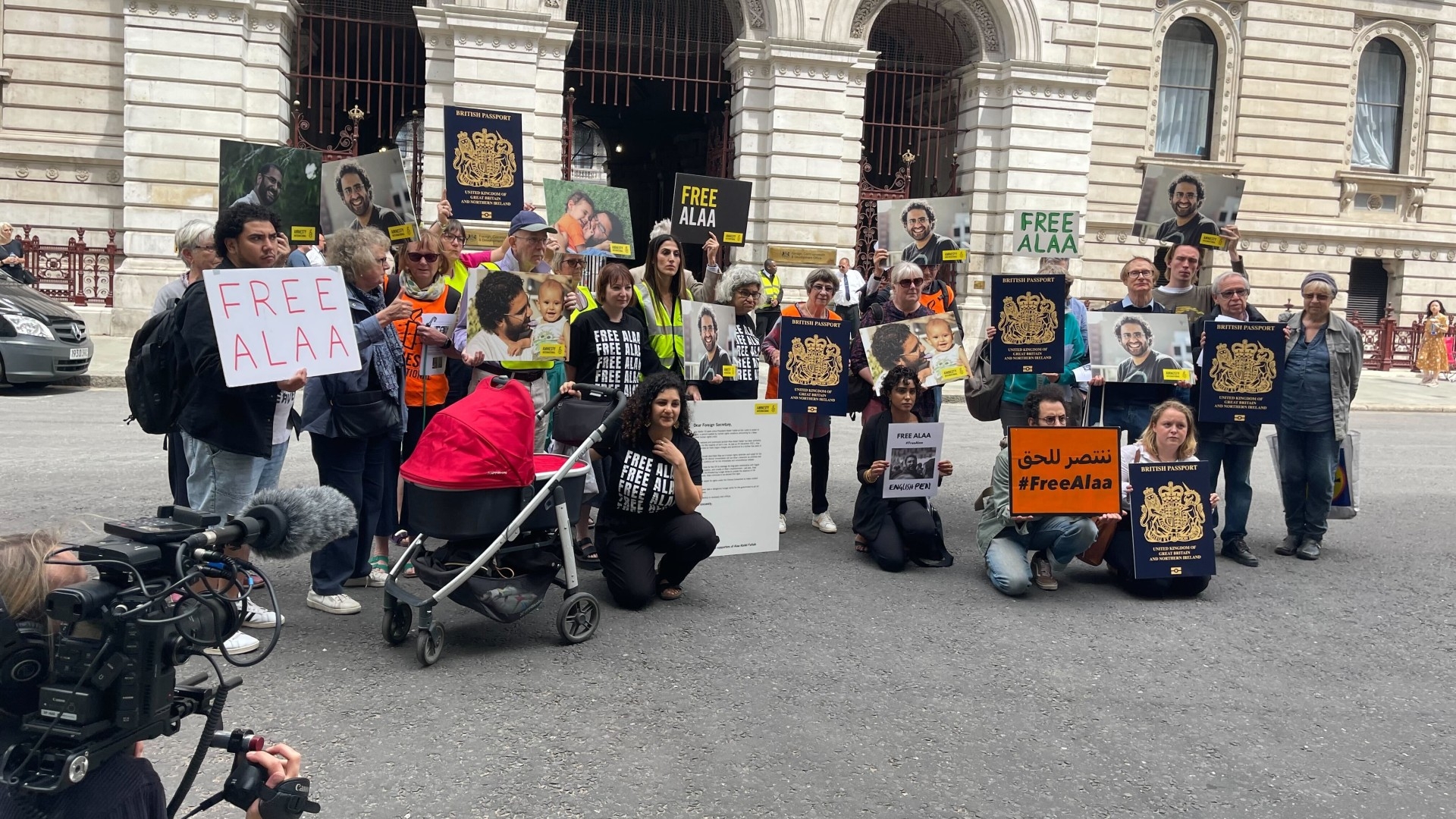
More than 100 lawmakers have written to the UK government calling for it to update travel advice for visitors to Egypt to include information on the detainment of UK nationals, in light of the continued imprisonment of British-Egyptian writer Alaa Abd el-Fattah.
MPs and peers signed a joint letter sent to UK Foreign Secretary James Cleverly on Monday, which coincided with the tenth anniversary of the military coup that deposed Egypt’s first democratically elected president.
The letter was handed over to a Foreign, Commonwealth and Development Office (FCDO) official outside the department building in London by Abd el-Fattah’s mother, Leila Soueif, and his sister Mona, during a protest on Monday.
Demonstrators, including activists from Amnesty International, held up images of Abd el-Fattah and of a British passport, while collecting signatures from passers-by near the FCDO entrance.
Abd el-Fattah was an icon of the 2011 Egyptian revolution and has spent eight of the past 10 years in jail on various charges.
New MEE newsletter: Jerusalem Dispatch
Sign up to get the latest insights and analysis on Israel-Palestine, alongside Turkey Unpacked and other MEE newsletters
He was rearrested in September 2019, and again in December 2021, when he was sentenced to five years in prison by an emergency state security court on charges of spreading "false news" in a trial widely condemned by human rights defenders. The evidence used against him was a retweet.
The letter called for a fresh approach that drew on “traditional British strengths of international diplomacy”.
It urged the FCDO to update its travel advice, to align with that of the US to include details on the situation of detained nationals in Egypt.
US travel advice states: “US citizenship does not provide protection from detention or arrest by Egyptian authorities, and individuals detained may be subjected to prolonged interrogations and extended detention.”
American guidance also adds that Egyptian authorities do not automatically notify the US embassy when a dual national is detained, or provide information on their alleged crime.
Travel advice
The statement said that it was a “serious concern” that British nationals didn’t have clear advice on a matter of personal security.
It added that the UK embassy’s refusal to grant consular access to Abd el-Fattah suggested the situation for British dual nationals was “similar or even worse to that of Americans”.
'The British government has to take a stand on the safety of their citizens'
- Leila Soueif, mother of Alaa Abd el-Fattah
“If the British government doesn’t have [leverage], it should be saying this,” Soueif, Alaa’s mother, told Middle East Eye during the protest.
“It should be saying to British tourists and businessmen: if you are in Egypt and get into the wrong side for any reason… we might not be able to help you, we might be denied consular access.
“The British government has to take a stand on the safety of their citizens.”
Signatories to the letter included former Conservative leader Iain Duncan Smith, former cabinet minister Baroness Sayeeda Warsi, and Oxford University Vice Chancellor Lord Patten.
The statement urged the UK government to use the UN Human Rights Council to lead a joint condemnation of human rights abuses in Egypt.
UK Prime Minister Rishi Sunak raised the imprisonment of Abd el-Fattah during the Cop28 climate summit in Egypt’s Sharm el-Sheikh in November.
But the parliamentarians wrote to Cleverly to express their “concern at the lack of progress” six months on.
Soueif said that her daughter Sanaa had visited Abd el-Fattah last week during the Eid festival, and that his prison conditions were “slightly better” than previously.
“But our main complaint still stands. First he’s in prison. Second he’s not getting consular visits, he’s not getting lawyer visits,” she said.
“He is allowed to watch sports channels but not something that would have news.”
Decade since Sisi's coup
On 3 July 2013, Egypt's military led by General Abdel Fattah el-Sisi removed Mohamed Morsi, Egypt's first democratically elected president, from power.
The day marked the beginning of a purge of Islamist and Muslim Brotherhood leaders that would morph into a wider crackdown on dissent targeting journalists, businesspeople and secular opponents of the military-led government.
Sisi suspended the constitution and established himself as leader of the country.
'People are disappearing. People are being killed and jailed'
- Leila Soueif, Alaa Abd el-Fattah's mother
“The situation in Egypt is the worst we have ever seen,” said Soueif. “People are disappearing. People are being killed and jailed.”
She said that while her son’s predicament was “bad enough”, there were “much worse cases”.
“There are kids who have been in jail on remand, they haven't been tried and sentenced for 10 years, just because they are kids of Islamists,” she added.
Soueif cited the case of Anas el-Beltagy, the son of former Muslim Brotherhood leader and parliamentarian Mohamed El-Beltagy, who was arbitrarily detained a decade ago.
“He has been in jail since 2013. He was 19 when he was arrested, now he is 29,” she said, adding that Beltagy’s family has been denied family visits for most of that time.
“I get to see Alaa once a month at least. There are families who have not seen loved ones for years.”
Middle East Eye delivers independent and unrivalled coverage and analysis of the Middle East, North Africa and beyond. To learn more about republishing this content and the associated fees, please fill out this form. More about MEE can be found here.


